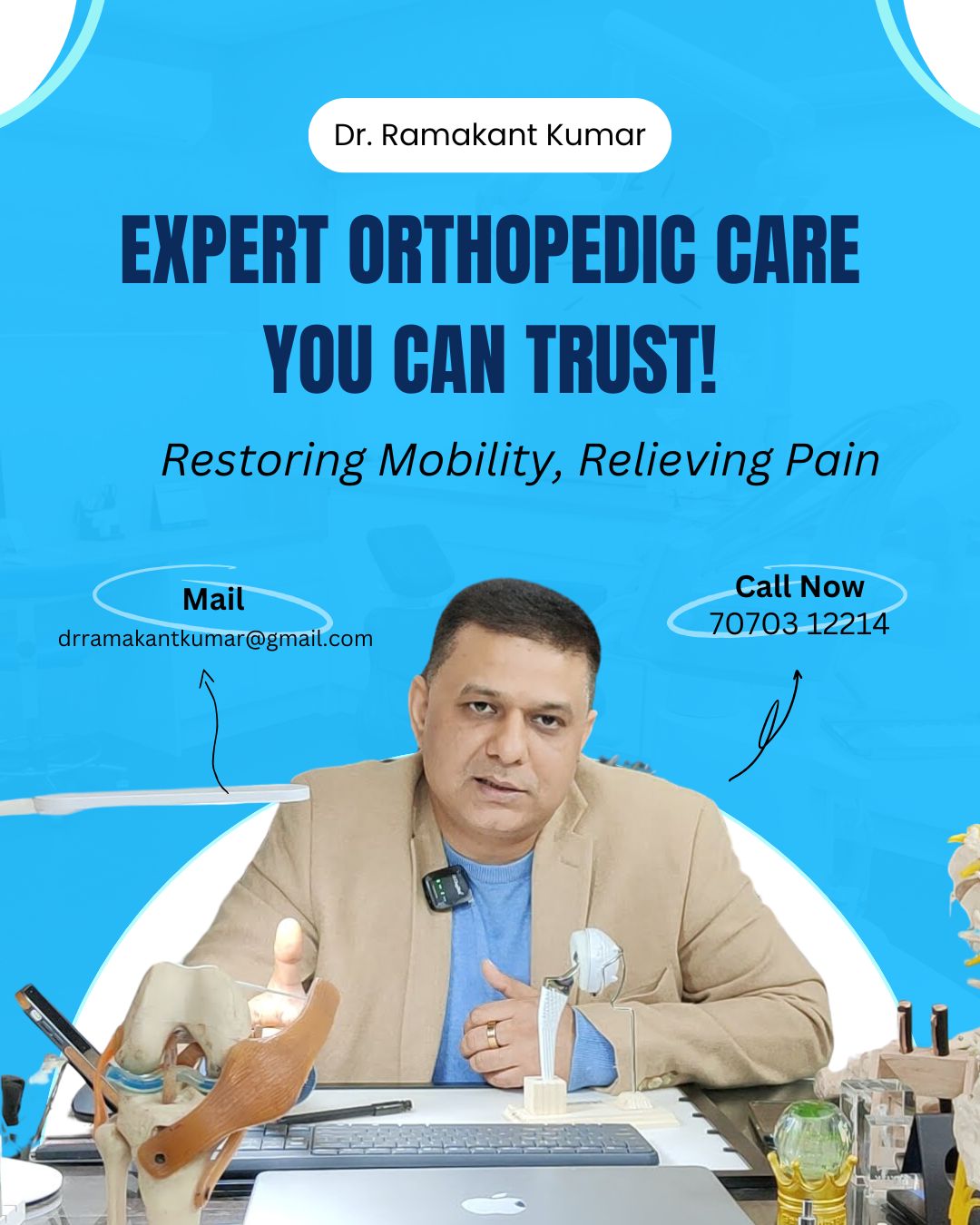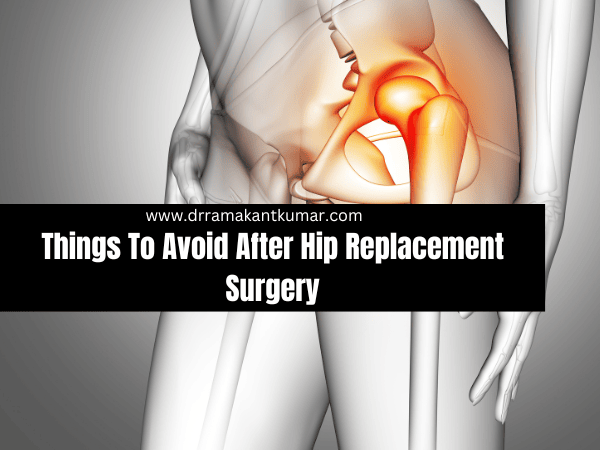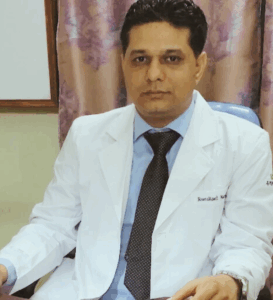After undergoing hip replacement surgery, it is crucial to adhere to certain precautions to ensure a smooth and successful recovery.
Avoiding specific activities like Turning Over In Bed After Hip Replacement and movements can prevent complications and enhance the healing process.
Dr. Ramakant Kumar, a renowned Hip Replacement Surgeon in Patna, emphasizes the importance of following these guidelines.
With his expertise and commitment to patient care, Dr. Kumar provides exceptional post-operative support, ensuring his patients achieve optimal outcomes and regain their mobility safely.
Under his guidance, patients can confidently navigate their Total Hip Replacement Recovery Week By Week and return to an active, pain-free lifestyle.
Contents
- 1 Things to Avoid After Hip Replacement Surgery
- 1.1 #1. Avoid High-Impact Activities
- 1.2 #2. Avoid Bending at the Waist Beyond 90 Degrees
- 1.3 #3. Avoid Crossing Your Legs
- 1.4 #4. Avoid Twisting Movements
- 1.5 #5. Avoid Low Chairs and Sofas
- 1.6 #6. Avoid Sleeping on Your Stomach
- 1.7 #7. Avoid Driving Until Cleared by Your Surgeon
- 1.8 #8. Avoid Neglecting Physical Therapy
- 1.9 #10. Avoid Gaining Excess Weight
- 1.10 #11. Avoid Ignoring Pain or Unusual Symptoms
- 2 What to Avoid After Hip Replacement Surgery?
Things to Avoid After Hip Replacement Surgery
Undergoing hip replacement surgery is a significant step toward regaining mobility and improving your quality of life.
However, the recovery period is crucial, and knowing what to avoid is key to a successful rehabilitation. What To Expect The First Week After Hip Replacement Surgery? Here are some important things to steer clear of after hip replacement surgery:
#1. Avoid High-Impact Activities
High-impact activities such as running, jumping, or heavy lifting can place undue stress on your new hip joint.
These activities can increase the risk of dislocation, wear, or other complications. Stick to Best Exercise After Hip Replacement like walking, swimming, or cycling to keep your new hip in good condition.
#2. Avoid Bending at the Waist Beyond 90 Degrees
Bending your hip beyond 90 degrees can increase the risk of dislocation, especially in the early stages of recovery. When Can I Lift Heavy Objects After Hip Replacement? Or How Long After Hip Replacement Can I Tie My Shoes?
Well avoid activities that require you to bend over, such as tying your shoes or picking up objects from the floor. Use assistive devices like a reacher or a long-handled shoehorn to help with daily tasks.
#3. Avoid Crossing Your Legs
Crossing your legs at the knees or ankles can lead to dislocation of the hip joint.
When sitting or lying down, keep your legs apart to maintain proper alignment of the hip. Use pillows or cushions to support your legs and avoid crossing them while sleeping.
#4. Avoid Twisting Movements
Twisting or pivoting on your operated leg can cause strain on your new hip joint. Be mindful of your movements when turning or changing directions. Instead of twisting, take small steps to turn your body, keeping your feet and hips aligned.
#5. Avoid Low Chairs and Sofas
Sitting in low chairs or sofas can make it difficult to get up without bending your hip too much. Opt for chairs with higher seats and firm cushions that allow you to sit and stand with ease. Consider using a raised toilet seat to avoid excessive bending.
#6. Avoid Sleeping on Your Stomach
Sleeping on your stomach can put unnecessary pressure on your hip joint.
It’s best to sleep on your back or side, with a pillow between your legs to keep your hips aligned. This helps prevent dislocation and ensures a comfortable sleeping position.
#7. Avoid Driving Until Cleared by Your Surgeon
Driving too soon after hip replacement surgery can be dangerous. Your reaction times may be slower, and you may not have the strength to operate the pedals safely.
Wait until your surgeon gives you the green light to drive, which is typically several weeks after surgery.
#8. Avoid Neglecting Physical Therapy
Physical therapy is an essential part of your recovery process.
Skipping therapy sessions or not following your therapist’s recommendations can hinder your progress. Stay committed to your Exercises 1 Year After Hip Replacement routine to regain strength, flexibility, and mobility in your new hip.
#10. Avoid Gaining Excess Weight
Excess weight can put additional stress on your hip joint, potentially leading to complications.
Maintain a healthy diet and engage in low-impact exercises to keep your weight in check. This will help ensure the longevity and functionality of your new hip.
#11. Avoid Ignoring Pain or Unusual Symptoms
Pay close attention to your body and any signs of pain or discomfort.
If you experience severe pain, swelling, redness, or any unusual symptoms, contact your Hip Replacement Doctor in Patna immediately. Early intervention can prevent complications and ensure a smooth recovery.
By avoiding these common pitfalls, you can help ensure a successful recovery without having any Permanent Restrictions After Hip Replacement Surgery. Always follow your orthopedic surgeon specialist’s advice and attend all follow-up appointments to monitor your progress.
With proper care and attention, you’ll be well on your way to enjoying a more active and pain-free life.
What to Avoid After Hip Replacement Surgery?
To ensure a smooth and successful recovery after hip replacement surgery, it is crucial to avoid activities that can strain or dislocate your new hip joint. Refrain from crossing your legs, bending your hip beyond 90 degrees, twisting your leg inward or outward, and lifting heavy objects.
Following these precautions helps prevent complications and supports a faster, safer return to daily activities.
For comprehensive post-surgical care and expert guidance, consult Dr. Ramakant Kumar, the Best Orthopedic Doctor in Patna. A renowned orthopedic specialist, Dr. Kumar is dedicated to providing advanced treatment and personalized care to ensure optimal recovery and long-term joint health.




